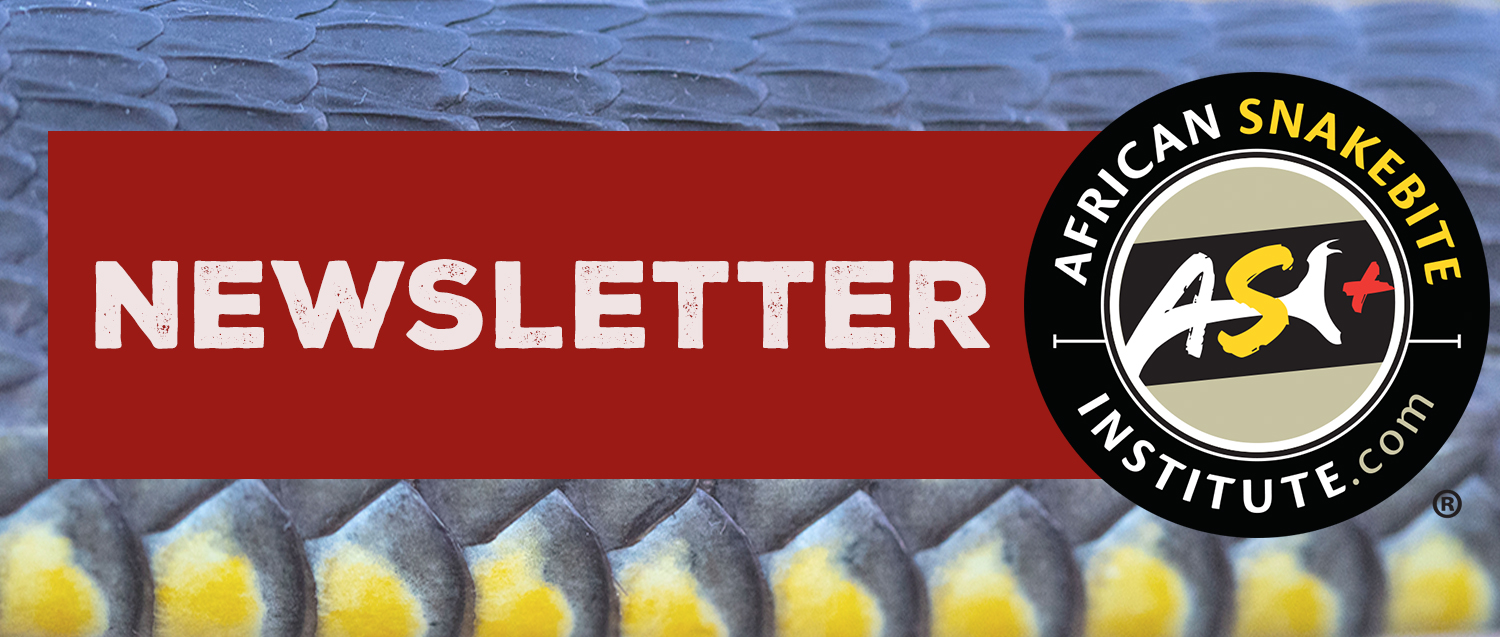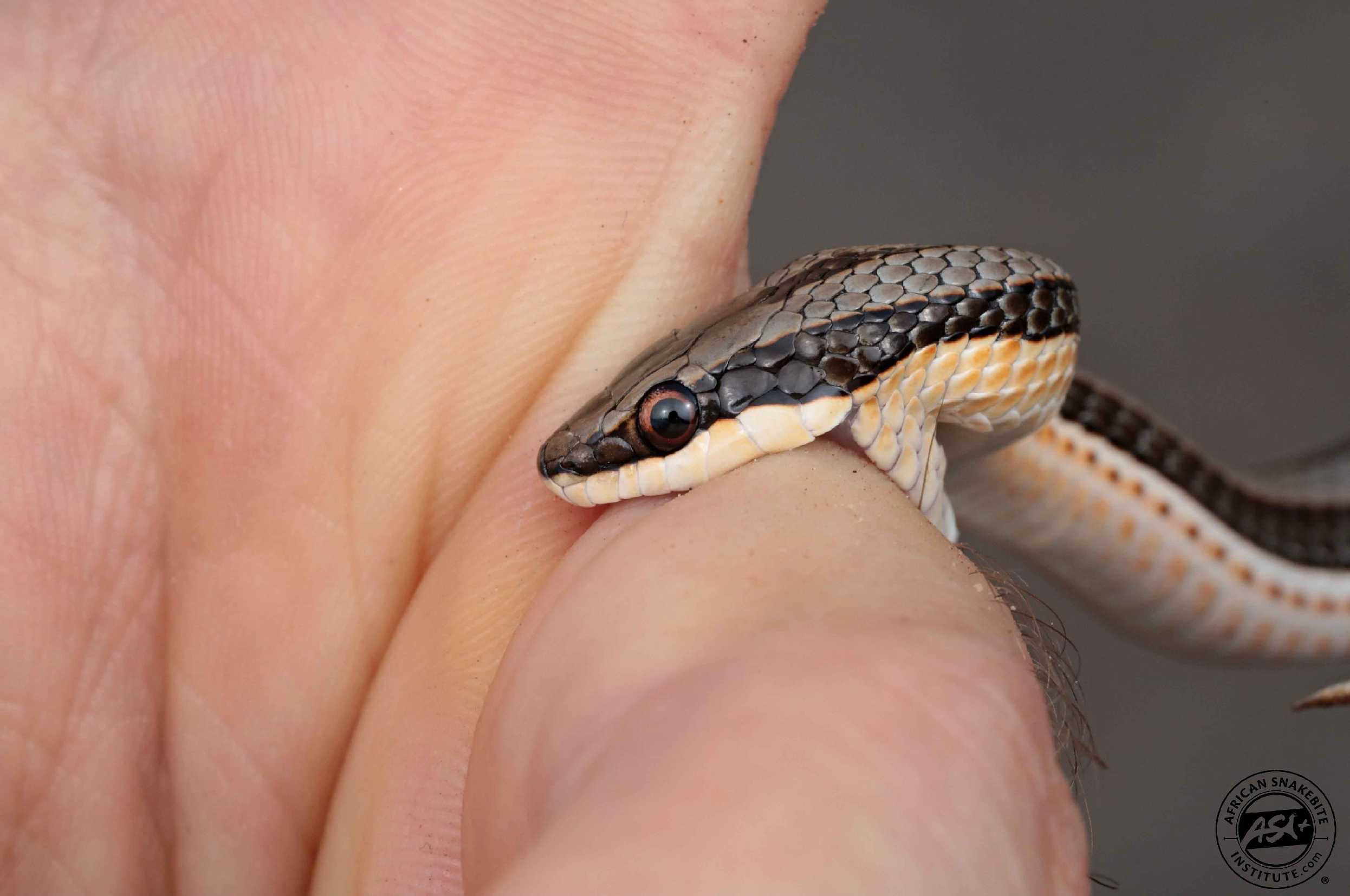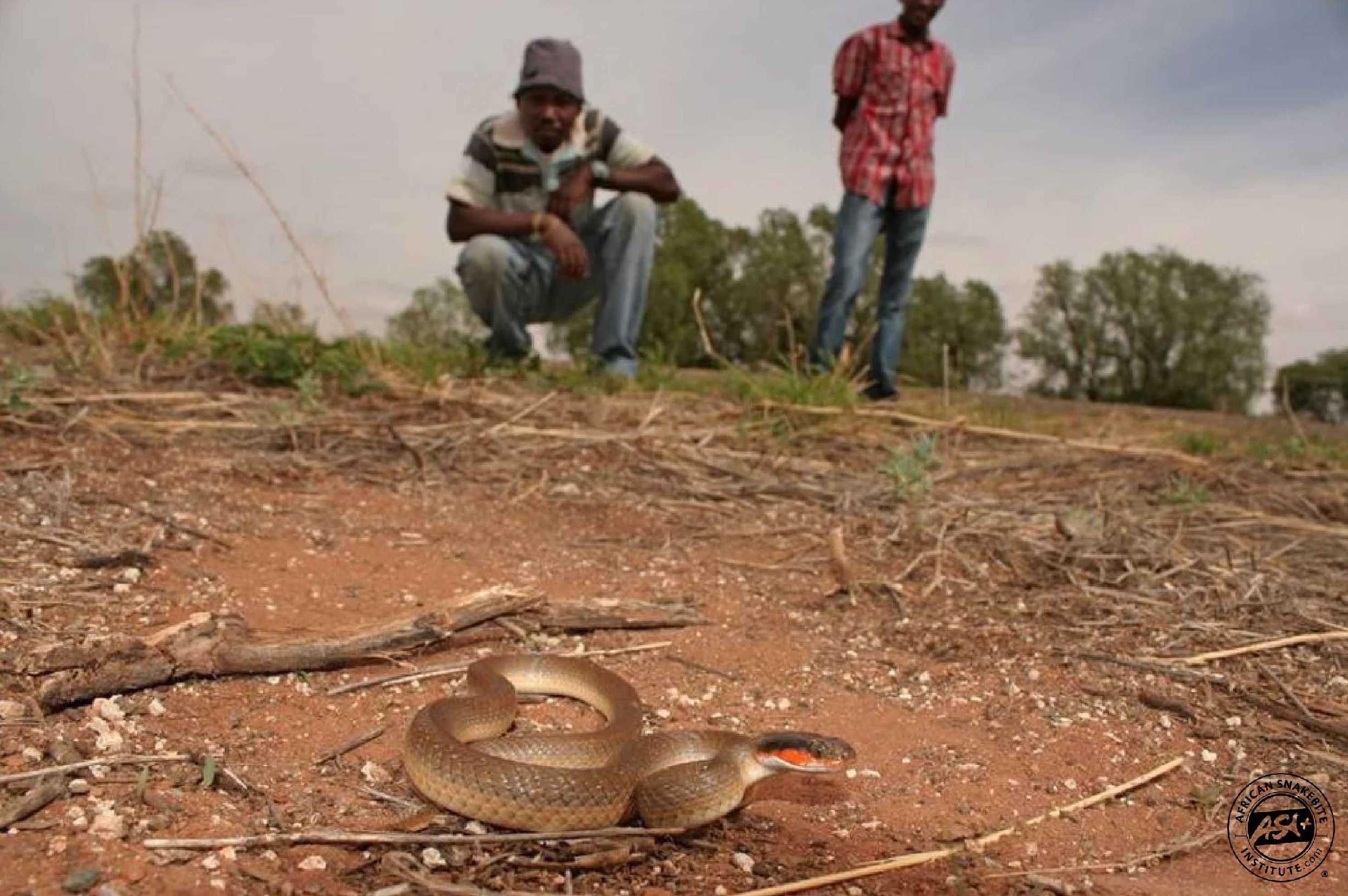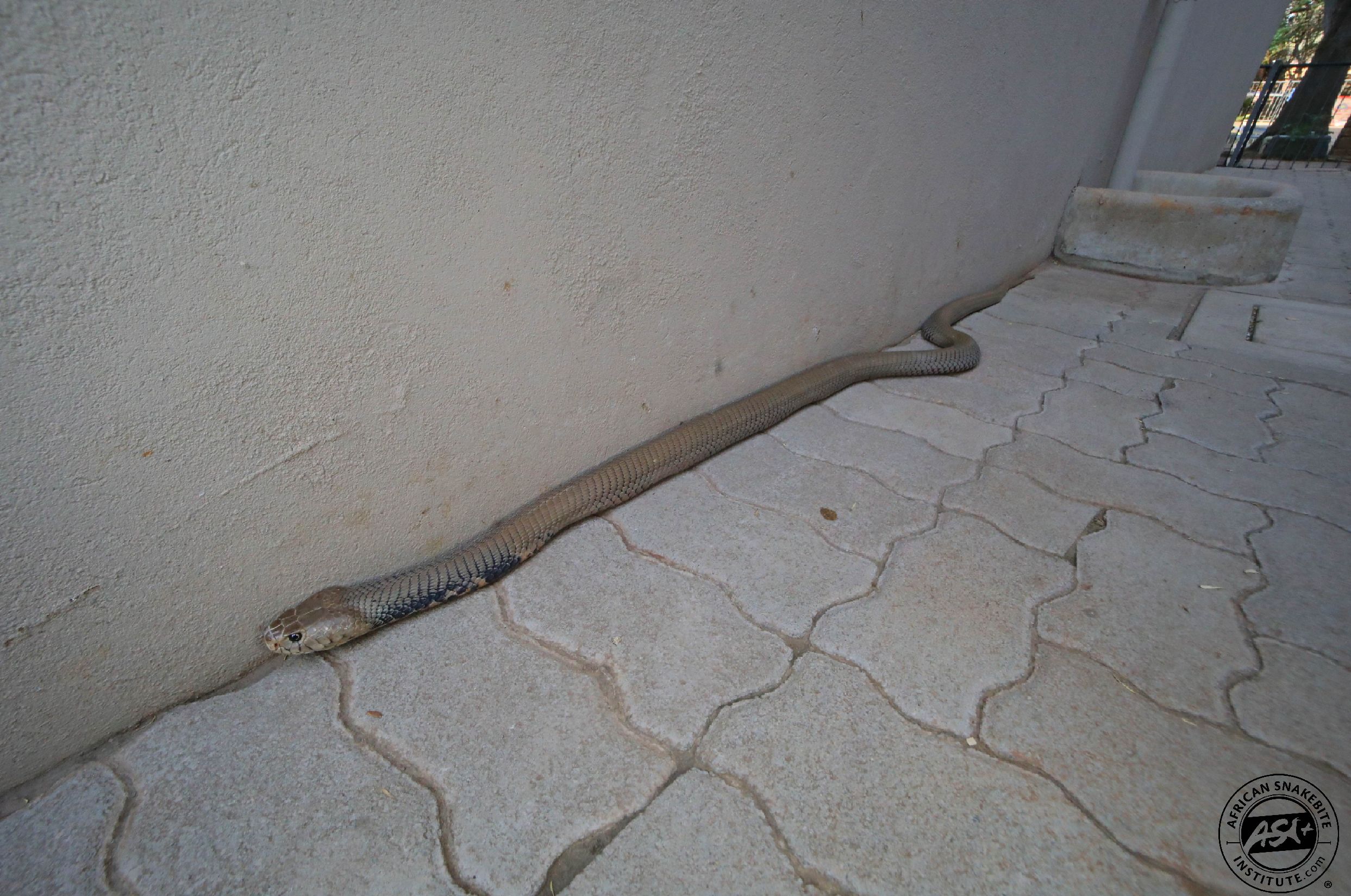|
You are receiving this email because you signed up for the monthly ASI Newsletter.
If you no longer wish to receive these emails you can unsubscribe here
|
 |
|
June 2024 - Are snakes dangerous?
|
|
|
|
Snakes are mysterious creatures – secretive and elusive and, of course without legs, yet they can slither quickly, disappear down holes, swim effectively and climb trees. Many snakes are venomous and some highly so.
There are many people that fear snakes. Some people have a phobia when it comes to snakes and cannot even look at a picture of a snake or will immediately leave the room if a snake appears on television. A great deal of research has been done in this regard and it appears that our fear of snakes is both nature and nurture. To some degree, we are genetically programmed to fear snakes, yet small children show little fear and will often happily touch a snake if the opportunity arises. We are also hard wired to quickly develop a fear of snakes and may be triggered by an aunt screaming to get out of the way when a snake is spotted. Over the years we have had several people that are terrified of snakes attending our snake awareness course and some of them are so terrified that they will drive halfway to the course, turn around and go home. Those that do manage to get through an awareness session have a major change in attitude – still very weary of snakes, but not so terrified as they have a far better understanding of how snakes behave and what their abilities are.
|
|
|
NEW BOOK!
Stock lands early next week - so this is the last chance to take advantage of the prepublication special price on the new Snakes and other reptiles of Kruger!
Prepublicaiton special price of R225.00
(Including local shipping).
|
| Order here |
|
|
|
We have 177 different types of snakes in southern Africa and over 70 snakes have no venom. They obviously have teeth, as they need them to capture prey, but have no venom whatsoever. Snakes developed venom a very long time ago and the main purpose of venom is to rapidly immobilize and kill prey. To produce venom, they need energy, and this comes from food. And as all snakes are highly efficient at conserving energy, they have no desire to waste venom. Even for self-defense, snake venom is highly inefficient as no snake can bite and kill you in a minute or two. The exception, of course, is spitting snakes. If threatened the snake quickly spits a few minute drops of venom into the eyes, which causes instant pain and a tendency for the victim to keep both eyes shut and the snake rapidly escapes.
|
 |
|
Snakes will only bite out in self-defense if threatened.
|
|
|
|
If we look at snakebite statistics it is quite clear that snakes bite people in desperation. While most people are bitten when accidentally stepping onto a snake, and this happens mainly at night, others are bitten on the hand when unknowingly getting a hand close to a snake and it bites in self-defense. Should you corner a snake in a confined space, like a pump house on a farm, and the snake cannot easily escape, it may well bite. In other cases, we see people accidentally surprising a snake in the field – suddenly stepping very close to a basking snake that failed to detect your approach, and the snake may strike out in self-defense.
The bottom line is that snakes have no desire to bite people and certainly do not chase after people. If you are five paces or more away from any snake in any situation, you are perfectly safe and cannot get bitten. If ever you find yourself in a position where you are right next to a snake, perhaps a cobra forming a hood, it is best to immediately back off at least five paces.
|
 |
|
|
|
If you are five paces or more away from any snake in any situation, you are perfectly safe and cannot get bitten.
|
|
There is one problem snake in southern Africa and that is the Mozambique Spitting Cobra, also known as the Mfezi. It is a common snake where it occurs, is both active during the day and night and is an active hunter. It eats just about anything – birds, rodents, frogs, other snakes and virtually anything it can get hold of. When hunting it may come across a house and with a wall in front of it, the snake will turn either left or right and slither along the wall. Should it come across an open sliding door or if the gap under the door is big enough, it may enter the dwelling. Once inside it will continue to hunt for food, largely using its forked tongue and highly effective Jacobson’s organ in the roof of the mouth to detect scent. A sleeping person represents a mammalian prey, and many people get bitten by this snake while asleep in their bed. Several babies end up in hospital after being bitten in the face or elsewhere on the body. Mozambique Spitting Cobra venom is potently cytotoxic causing pain, swelling and, in many cases, severe tissue damage. There is no first aid that members of the public can administer for these bites – victims need to be hospitalized and, in most cases, treated with antivenom. Many victims suffer from severe tissue damage and require subsequent operations and skin grafts. Fatalities are rare, but morbidity is a serious problem. Namibia and Angola have a Zebra Cobra that behaves in the same manner – biting people in their beds while asleep.
|
 |
|
|
|
Mozambique Spitting Cobras are common and often found around human dwellings.
|
|
|
|
100 LED SCORPION TORCH
Quickly becoming one of our best-sellers, the 100 LED Scorpion torch is our most powerful Scorpion torch to date!
The ASI 100 LED Scorpion Torch emits Ultra-Violet fluorescent light which exposes UV reflective markings in a scorpion’s exoskeleton. Effective for finding scorpions 10m away!
Heavy duty aluminium casing. UV Wavelength 390 nm (ideal for scorpion detection).
Price R395.00 each
|
| Order here |
|
|
|
As for dogs, most breeds are natural hunters and when a snake is spotted, they attack and rarely give the snake the opportunity to escape. While some dogs are efficient at killing snakes, most of them end up being bitten and unless the dog is taken to a vet quickly, many of them die.
The correct treatment for serious snakebite envenomation is antivenom and the same antivenom is used on humans and pets. It is expensive and is only administered in a hospital environment. All snakebite victims are not treated with antivenom as it is not always necessary – it depends on the species of snake responsible for a bite and the severity of the bite.
While we have many highly venomous snakes in southern Africa, and they are difficult to distinguish from harmless species, snakes have no desire to bite people and will only bite in desperation. By keeping our properties clean of building rubble and food that may attract rodents as well as minimizing water features that attract frogs, we can reduce the risk of snakes entering our properties. When in the field, stick to foot paths and when walking at night, make use of a torch and watch where you are walking.
|
|
|
|
|
|
NEW SNAKE GAITERS
ASI Fly Fishermans’ Snake Gaiters are proudly made in South Africa – they are flexible snake gaiters that weigh 240 grams each.
The Fly Fisherman’s Snake Gaiters have been tested against bites from the Puff Adder, Cape Cobra, Snouted Cobra and Black Mamba with no penetration during testing.
Price R2450.00
|
| Order here |
|
|
|
|
|
GAUTENG
MULDERSDRIFT
Snake Awareness, First Aid for Snakebite and Venomous Snake Handling Course
Date: Saturday 29 June 2024
Venue: Cradle Moon Lakeside Lodge, Muldersdrift
|
|
|
| Book here |
|
|
|
GAUTENG
MULDERSDRIFT
Kids' Snake Awareness Session
Date: Saturday 29 June 2024
Venue: Cradle Moon Lakeside Lodge, Muldersdrift
|
|
|
| Book here |
|
|
|
FREE STATE
BLOEMFONTEIN
Snake Awareness, First Aid for Snakebite and Venomous Snake Handling Course
Date: Saturday 06 July 2024
Venue: Hellenic Community Center, Bloemfontein
|
|
|
| Book here |
|
|
|
FREE STATE
BLOEMFONTEIN
Venomous Snake Handling Bootcamp
Date: Sunday 07 July 2024
Venue: Hellenic Community Center, Bloemfontein
|
|
|
| Book here |
|
|
|
NORTH WEST
BRITS
Snake Awareness, First Aid for Snakebite and Venomous Snake Handling Course
Date: Saturday 13 July 2024
Venue: Rotsinbos Bush Camp, Brits
|
|
|
| Book here |
|
|
|
NORTH WEST
BRITS
Venomous Snake Handling Bootcamp
Date: Sunday 14 July 2024
Venue: Rotsinbos Bush Camp, Brits
|
|
|
| Book here |
|
|
|
WESTERN CAPE
KLAPMUTS
Snake Awareness, First Aid for Snakebite and Venomous Snake Handling Course
Date: Saturday 20 July 2024
Venue: Exotic Animal World, Klapmuts
|
|
|
| Book here |
|
|
|
WESTERN CAPE
KLAPMUTS
Venomous Snake Handling Bootcamp
Date: Sunday 21 July 2024
Venue: Exotic Animal World, Klapmuts
|
|
|
| Book here |
|
|
|
WESTERN CAPE
KLAPMUTS
Kids' Snake Awareness Course
Date: Saturday 21 July 2024
Venue: Exotic Animal World, Klapmuts
|
|
|
| Book here |
|
|
|
|
|
|
|
Johan Marais is the author of various books on reptiles including the best-seller A Complete Guide to Snakes of Southern Africa. He is a popular public speaker and offers a variety of courses including Snake Awareness, Scorpion Awareness and Venomous Snake Handling. Johan is accredited by the International Society of Zoological Sciences (ISZS) and is a and SASTM (South African Society of Travel Medicine) - approved service provider. His courses are also accredited by the HPCSA (Health Professions Council of South Africa). Johan is a qualified instructor for the Emergency Care & Safety Institute in Oxygen Administration and Wilderness First Aid and a qualified Basic Life Support instructor.
|
 |
|
Copyright © 2024 African Snakebite Institute, All rights reserved.
Our mailing address is:
admin@asiorg.co.za
unsubscribe from this list
|
|
|
|
|